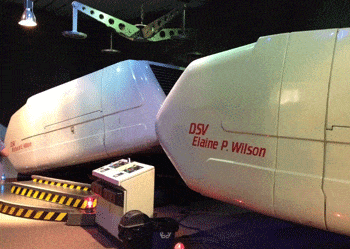Creating a scenario that challenges students to solve a mystery or puzzle is always great fun. When this is combined with a concrete timeline to get the study done and a requirement for the student to present their findings in character, you’ve got yourself a lesson that kids will remember for years! It’s all about forming a narrative that is convincing to kids and that puts them in the shoes of a researcher as they go about finding the clues in a series of hands-on experiments. One of the classic ways that science teachers have been using a scenario to teach science is via a forensic murder mystery. What student wouldn’t want to try to solve a crime using techniques they’ve seen on CSI, Bones, NCIS or any other prime time television program?

Setting the scene in a school CSI workshop visit
A forensics workshop is a natural fit for student groups to rotate around stations and easily fits into most school science curriculum units, so much so that we’ve been running our own forensics school incursion visits for years. Still, as engaging and fun as it is, does a forensics unit always have to be about a gruesome murder? As you’d imagine, you have to carefully choose whether this narrative is right for your students (this could bring up bad memories for some kids, unfortunately). Even if your students and your school are completely fine with you running this lab, at some point you may feel that you want to change it up a little… even if it’s just to keep yourself interested!
With this in mind, here are some extra sleuthing ideas on forensics that can you can run within your classroom. The more you surround your students in the immersive theme, the better the class!
- Shipwrecks & salvage… which vessel have the marine archaeologists discovered?
- Who stole the parrot? Our prize-winning parrot has gone missing…trace the clues to find the culprit!
- Forensic frenzy… can your scientific team put the evidence together in time?
- Cryptic codes; someone has hacked your computer but left code traces as to who they are…
- Which bug is this? The museums need your help to put order to their collection chaos.
- Digital dilemma; We’ve lost our top-secret satellite… can the teamwork out how to find it?
- Wow, you’ve just discovered that there is a hidden message in your favourite song! Now, how to work it out….
As you can see, there are quite a number of ways that you can completely change the topic and still run a class based on solving a mystery. When it comes down to it you can easily put together a variety of science experiments to fit a teaching scenario, it just depends on your creativity, time and access to resources. When I was on my Churchill Fellowship a couple of years ago I came was privileged to visit the Challenger Learning Center in Rochester, New York. The team at this centre had taken immersive student scenarios to a whole other level by having students participate in a 2-hour experience which places half the class in a pretend spacecraft on a mission to Mars whilst the other half helped them in a simulated Mission Control back on Earth. Connected by video conference, the students had a number of STEM challenges thrown at them against the backdrop of a countdown to landing and all the while surrounded by an environment that looked and felt authentic, even down students wearing costumes before the entered the rooms. The team also runs another student experience at the Bathysphere Underwater Biological Laboratory (BUBL), where again the students are placed in a station based exercise however this time they are trying to solve the question as to who has been polluting Lake Ontario, a fun environmental take on the forensics theme. This again was connected via video conference too.

Computers at a simulated mission control at the Challenger Learning Center

Diving simulators used by the BUBL
Of course, as a classroom teacher it would be unlikely that you would have the time and resources to produce this level of detail. Still, maybe you could get students to create a scenario for another class to solve? After all, if the students can make their own scenario that can teach others you will truly demonstrate that your students have a mastery level of knowledge. Besides, imagine the buzz in your school if you pulled this off! The rewards are great for those who dare!
Happy teaching,
























STANSW Young scientist STEM competition
Yes! This competition is fantastic 🙂
Here are some more school science competitions to check out too: